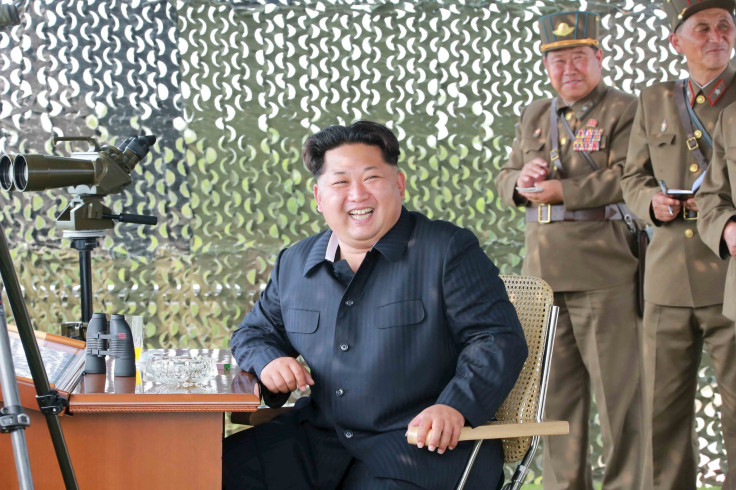North Korean Pesticide Plant Capable Of Producing 'Military-Sized Batches Of Biological Weapons'

A North Korean pesticides factory visited by the country's leader Kim Jong Un last month is capable of producing significant amounts of biological weapons, including anthrax, a U.S. expert said Thursday, according to South Korean news agency Yonhap.
Melissa Hanham, a senior research associate at the James Martin Center for Nonproliferation Studies, said that she reached the conclusion after studying photos published by North Korean media of Kim's June 6 visit to the Pyongyang Bio-technical Institute.
"Analysis of the images reveals that the facility can produce regular, military-sized batches of biological weapons, specifically anthrax," she said during a presentation organized by 38 North, a website sponsored by the School of Advanced International Studies at Johns Hopkins University, Yonhap reported.
"The North Korean assertion that the plant is intended to produce insecticides is an old and well-used cover for a biological weapons program. In fact, it is not uncommon for biological weapons facilities to actually function as bio-insecticide plants," she added.
An analysis of photographs of Kim's visit by 38 North found that they showed dual-use equipment, which violates export control laws of The Australia Group -- a 41-nation bloc that includes the U.S. and many European countries, who agreed to prevent the spread of equipment for use in chemical or biological weapons programs.
Hanham also said that the photos of the facility could be seen as a “veiled threat” to the U.S. and South Korea, coming as their release did on the heels of revelations that the U.S. had accidentally shipped anthrax to South Korea. North Korea reportedly cited this action as proof that the countries planned to deploy chemical or biological weapons against it.
The research institute reportedly operates under the supervision of the Korean People's Army Unit 810, a key division of Pyongyang's military, which is highly regarded by North Korean leader Kim Jong Un. During his visit to the facility, he was so happy with scientists’ work there, he told them that he “wanted to carry them on his back,” the New York Times reported.
North Korea has a history of clandestine weapons programs, and has provoked the ire of the international community in the past, after carrying out tests of nuclear weapons and ballistic missiles, seen as threatening to its neighbors and the U.S.
© Copyright IBTimes 2025. All rights reserved.






















